Another jittery week in Silicon Valley
- Published
- comments

There are two "big ones" due in Silicon Valley. One could come from shifting tectonic plates, the other from shifting tech trends.
People here treat both potential disasters in much the same way: try not to think about it, and just hope you're not in a bad place when it happens.
There is little we can do about an earthquake, so let's look at the tech bubble. If it does again burst here, lessons learned from the first time around could ensure it's not so much a pop, but more a gentle deflation.
There may have been signs of that this week, with yet another set of whimpering results from Twitter, a company which is increasingly looking like it needs to be bought out, if only to save us all from this quarterly misery report.
Twitter is San Francisco's canary in the mine, because the story here isn't so much about one company, but what impact its struggles are having on the wider tech ecosystem.
I'd normally avoid using a word like "ecosystem" unless strictly talking about the animal kingdom - but it is appropriate here. What we've seen play out this week is travelling right down the food chain.
Getting in early
When plucky entrepreneurs flock to this part of the world, they very rarely do so to become the next Apple - that's far too outlandish.
But they do come here very much in the belief they can be the next Twitter, a company that is a beacon for a good, simple idea hitting the big time.
Investors are here for the same reason. They believe that by chucking in a few million bucks, they could get in early on the "next Twitter" and enjoy the huge payout that comes from what they refer to as an "exit".
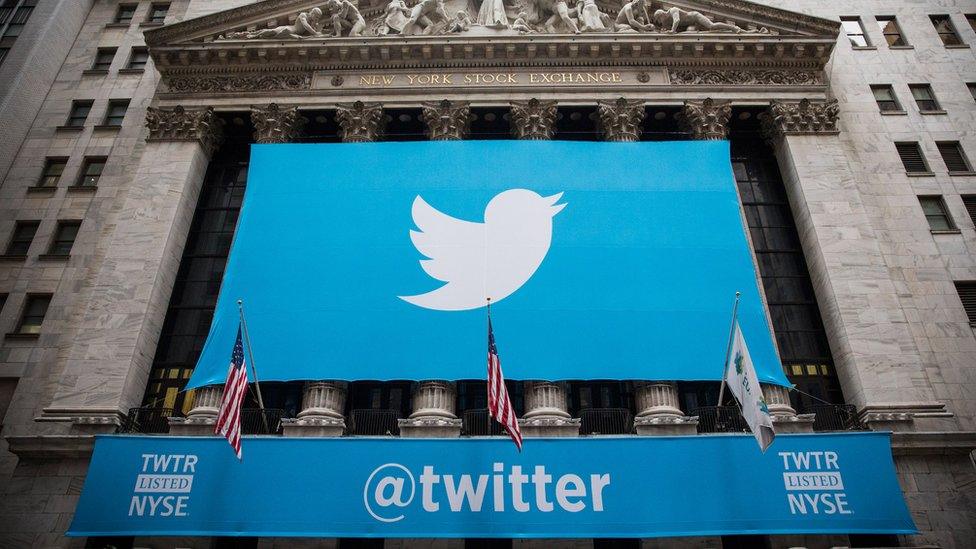
Twitter has so far failed to live up to expectations
For start-ups, an exit usually means one of two things will happen. You either get bought, by a Google or suchlike, or go public - just as Twitter did back in 2013. When that happened, the company hit a value of $31bn. Early investors were jumping with joy - their early gamble had paid off.
But unless tech firms offer investors an exit, there is less incentive, and without incentive there's no money. So when Twitter's stock value plummets, the knock-on is that future tech stocks may be priced lower. The next tech firm to go public (and right now, we're not expecting any - a telling sign in itself) will see their value curtailed due to across the board worries about technology stock.
It means those early investors, crucial to fostering the "next Twitter", will spend less on new ideas. Can you blame them? Without that big pay-off it's all speculate, no accumulate.
Twitter's struggles are also having an impact in other, more peculiar ways. The San Francisco rental market is notoriously nightmarish - but recently it has been getting a little cheaper.
It is extremely difficult to pinpoint exactly why, but one prominent theory - as discussed in the San Francisco Chronicle on Sunday, external - is that other tech firms are spooked by Twitter's struggles and reports that they are selling off office space.
Firms are therefore pulling back on expansion plans and hiring less. With fewer money-no-object techies flocking to town, demand for housing has slowed, and prices have chilled out a bit. For now.
See what I mean about an ecosystem?
Great expectations
When we look to the top of the food chain here, you see the biggest company - Apple - suffering its first slump in 13 years, with warnings of worse to come.
Google is hurt, too. It made its own parent company, Alphabet, as a way of keeping investors happy at a time when they were worried Google was spending too much on crazy ideas. Alphabet is going strong, but its last earnings were surprisingly disappointing, coming in below Wall Street's expectations.
But then again, they were truly great expectations. They always are. As my colleague Mariko Oi put it on air earlier: have you ever been so good at your job your boss expects more and more from you?
In that regard, Facebook has been the Valley's employee of the month for a while now.
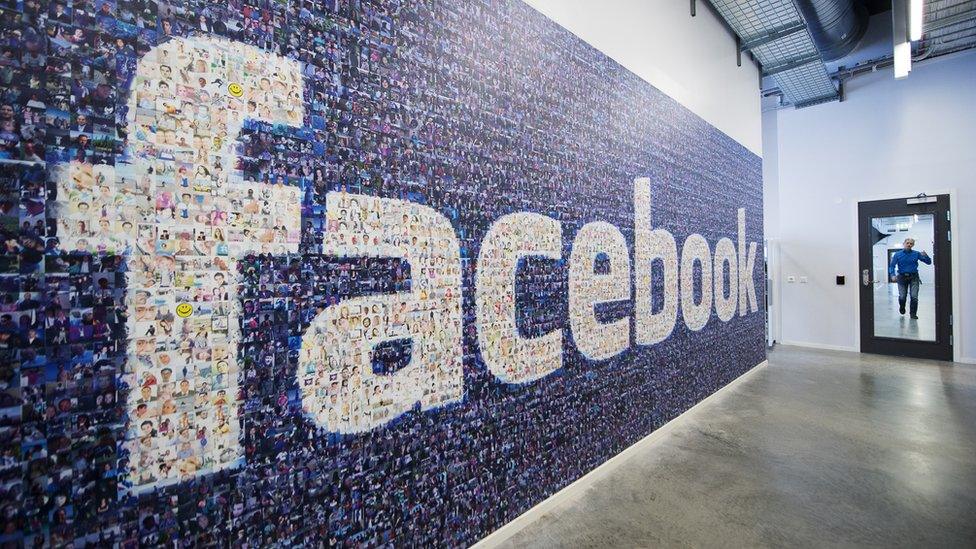
Have you ever been so good at your job your boss expects more and more from you?
Here is a company that hasn't suffered a single significant blip in its entire history. Up and up and up - acquisitions that had people scoffing at the time now look like relative bargains - like $1bn for Instagram, or nearly $20bn for Whatsapp.
The latter has the most active user base of any messaging app (second place is… Facebook Messenger), and Instagram has been deftly commercialised in a way that has brands very excited, but without harming overall user happiness. And ask anyone below 30 how many followers they have on social media, and they'll assume you mean Instagram, not Twitter.
Big bets
Wall Street's response to all this? It wants more more more. More revenue. More profit. More users, but with less spending. Take a stick, investors demand, and bring us the moon.
Remarkably, Facebook yet again managed to keep investors happy on Wednesday.
Its earning report brought relief to Silicon Valley, smashing expectations. Profits are up 195% compared to this time last year, helped by huge gains in people watching video, and therefore, advertising. Revenue overall last quarter was $5.4bn, of which $5.2bn came from ads.
What's less clear is how well some of its new ideas are panning out, such as the Oculus Rift virtual reality headset. That went on sale at the tail-end of the last quarter, but Facebook didn't spell out how much money it is bringing in, instead lumping it in with all of its non-advertising revenues, which totalled $181m.
Maybe it will update us soon. If VR is a flop, the company can at least fall back on other new areas like live video, or its plans to bring internet access to developing parts of the world, or artificial intelligence.
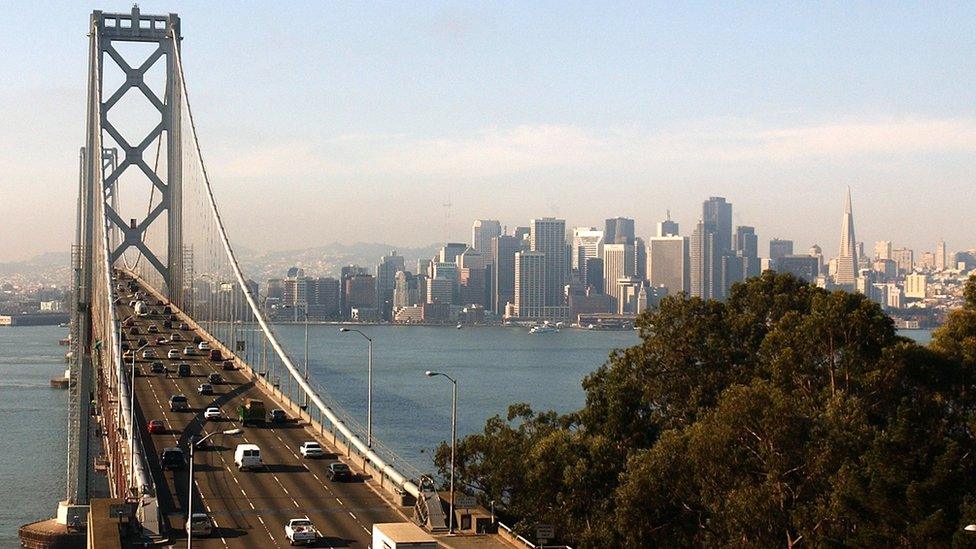
Real estate is still expensive but getting cheaper
We don't know what Apple is cooking up behind the scenes - a car, some say - but from the outside at least it's beginning to look like Facebook is powering ahead into the future while Apple is still figuring out what it needs to do to fix things in the present.
Handling defeat
Over the bridge from San Francisco is Oakland - an up-and-coming city that is home to the Golden State Warriors, the basketball team that recently broke the NBA's record for most wins in a single season - 73 (they lost just nine times).
For a while it looked like nobody could beat them - they won 24 games straight before losing for the first time this season in December.
When asked about how the team would handle the defeat, coach Steve Kerr said they knew a loss would come eventually, and so the team's focus was not to be spent thinking about the loss, but instead on how to approach the first game after that. (They beat Phoenix 123-103.)
If the Warriors win the NBA this season, which they likely will, people will of course expect even better next year. 74 wins? 75?
It's a path that will lead to eventual disappointment. Like the Warriors, Facebook is looking unbeatable right now, but Mark Zuckerberg will know that when you're at the top, the only way is down. Apple's dip came this week, and Facebook's will come eventually.
But as coach Kerr would stress, the key for tech firms here isn't to worry about the inevitable bad news, but to be adequately prepared to recover.
Follow Dave Lee on Twitter @DaveLeeBBC, external and on Facebook, external
- Published28 April 2016
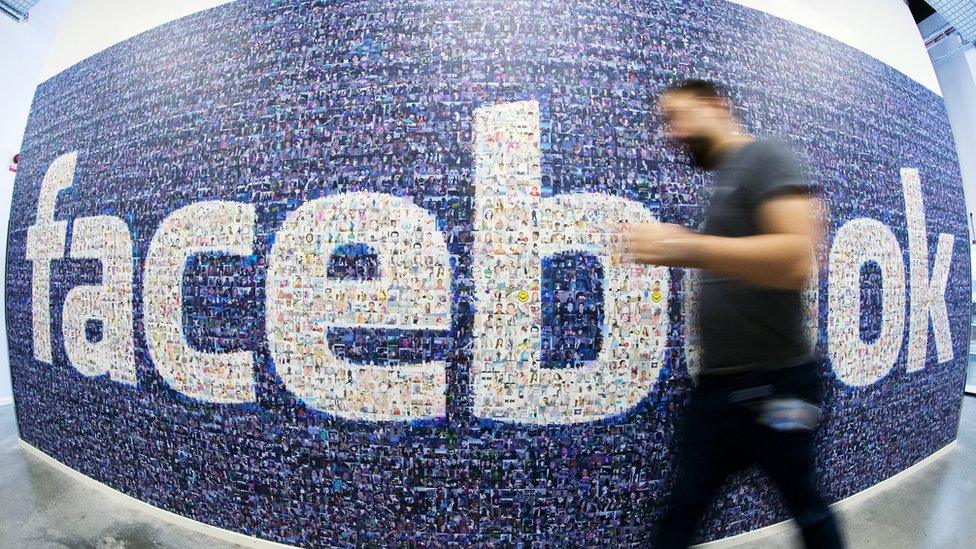
- Published27 April 2016
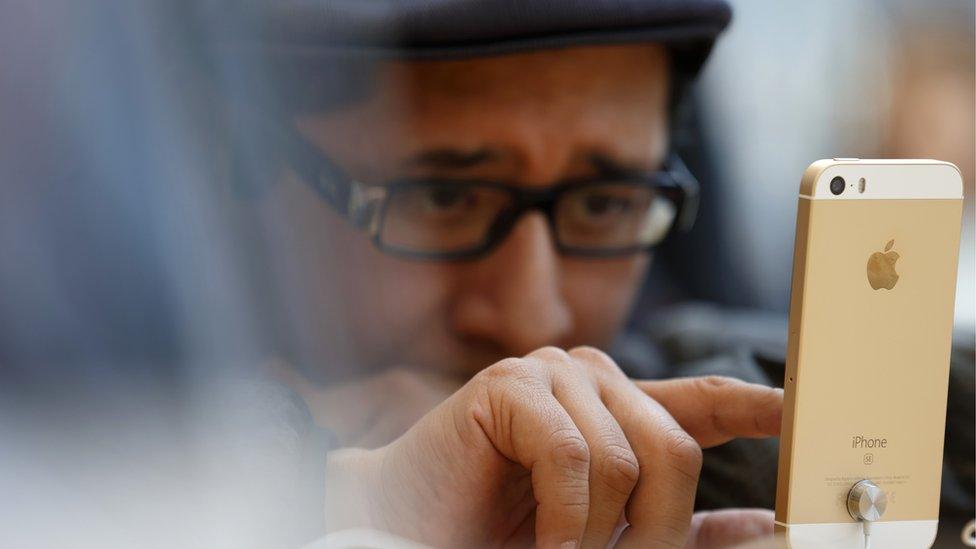
- Published26 April 2016